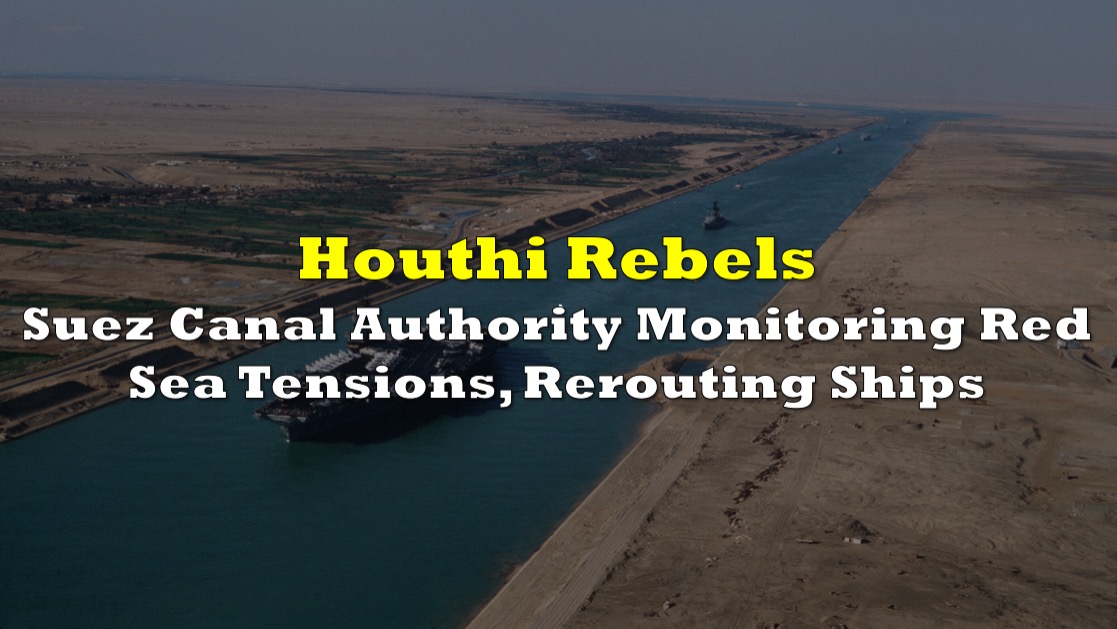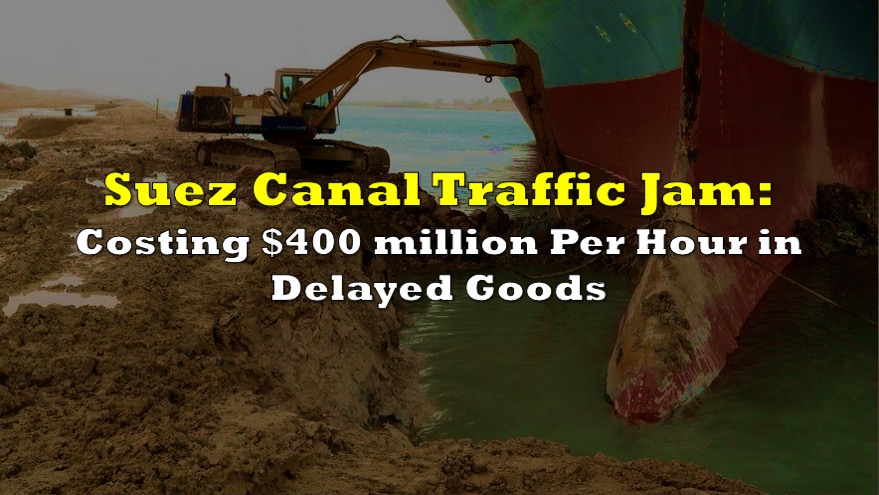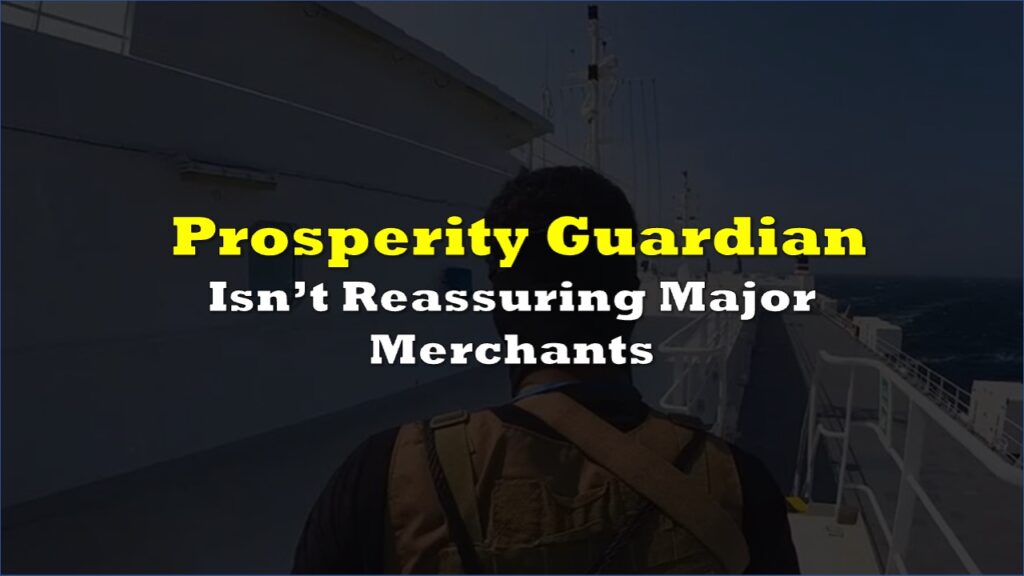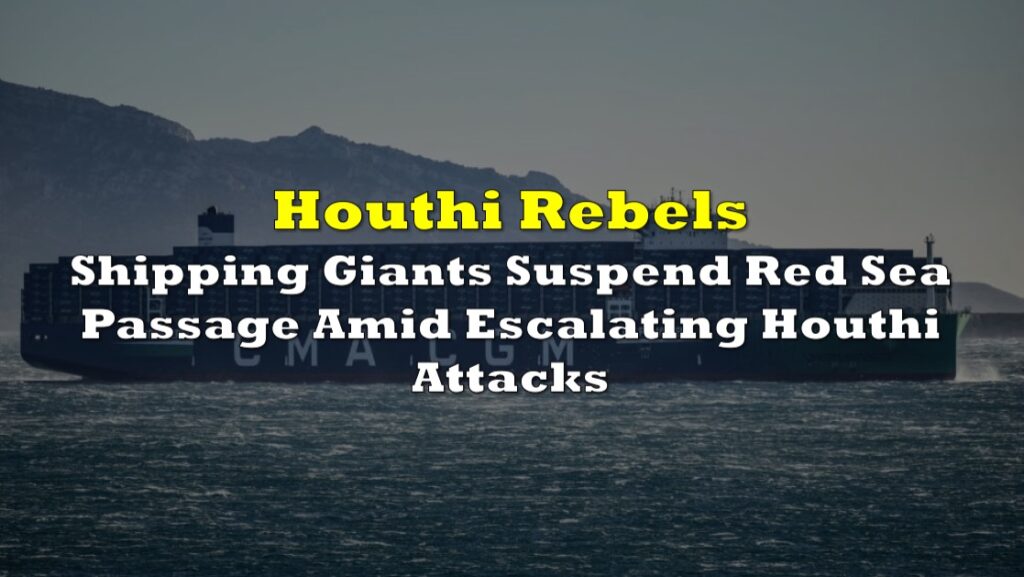The Suez Canal Authority is closely monitoring the ramifications of heightened tensions in the Red Sea, following recent attacks by Yemen’s Houthi rebels on vessels in the southern part of the basin.
The authority reported that, since November 19, 55 ships have rerouted via the Cape of Good Hope, while 2,128 have successfully crossed the canal during the same period.
In response to the escalating assaults by Houthi militants, major freight companies, including MSC, the world’s largest container shipping line, have opted to avoid the Suez Canal. The chairman of the Suez Canal Authority, Osama Rabie, stated, “We are closely following the consequences of current tensions.” He assured that maritime traffic within the canal remains normal at present, refraining from providing further details.
The attacks by Iran-aligned Houthi rebels against vessels in the region are a protest against Israel’s bombardment and invasion of Gaza, resulting in a toll of almost 19,000 Palestinian lives, as reported by Gaza health officials.
Rabie further disclosed that, on Sunday alone, 77 ships successfully crossed the canal, including vessels belonging to shipping lines that had previously announced temporary diversions. Notably, these diversions affected vessels already in the Red Sea region before the announcements were made.
Highlighting the economic impact, A.P. Moller-Maersk A/S and Hapag-Lloyd AG announced on Friday a temporary pause in voyages through the Red Sea, one of the world’s critical trade corridors. MSC Mediterranean Shipping Co. SA and CMA CGM followed suit on Saturday. The U.S. military reported shooting down 14 drones in the Red Sea on the same day, launched from Houthi-controlled areas of Yemen.
The Suez Canal, a major source of foreign currency for Egypt, is crucial as the country grapples with its worst economic crisis in decades. Revenue from the waterway reached $9.4 billion in the 2022-2023 fiscal year, up from $7 billion the previous year.
55 ships avoiding the canal, at about $500k/transit, represents a loss of $27.5 million to Egypt.
— Sal Mercogliano (WGOW Shipping) 🚢⚓🐪🚒🏴☠️ (@mercoglianos) December 17, 2023
On average 50 to 90 ships go through the canal daily, so this is not major; YET.
The bigger issue is the delays in deliveries & upset schedules this will cause in the ports. https://t.co/cp8H7eCBPY
The decision to divert vessels around the Cape of Good Hope, as indicated by major shipping lines, is expected to have ripple effects on global trade. San Francisco-based freight forwarding platform Flexport Inc. noted in a blog post that taking this alternative route prolongs the journey by seven to 10 days compared to using the Suez Canal.
Information for this briefing was found via Reuters, Bloomberg, and the sources mentioned. The author has no securities or affiliations related to this organization. Not a recommendation to buy or sell. Always do additional research and consult a professional before purchasing a security. The author holds no licenses.









